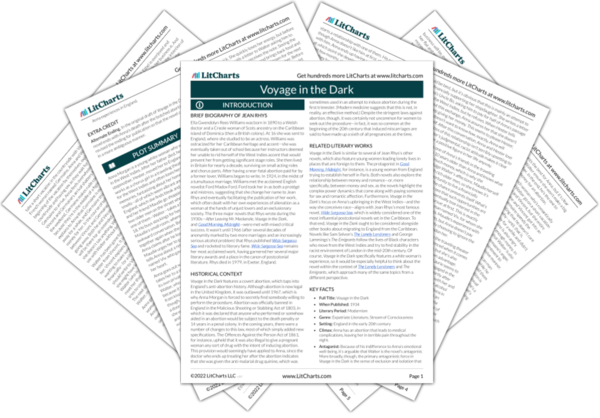Walter’s intentions with Anna are obvious: he wants to seduce her by buying her clothes (like the stockings he purchases) and taking her out to dinner. While this might seem off-putting to Anna, Maudie encourages her to indulge the transactional nature of his interest in her. She doesn’t tell Anna to go out with Walter because he’s attractive or appealing—rather, she tells her to accept his invitation because he has money, thus indicating that it can be very lucrative to get a wealthy older man’s attention. At the same time, though, the fact that Maudie talks so extensively about her own older lover, Viv, hints that she might have developed true feelings for him. In this way, simply taking advantage of a wealthy man’s passing affection comes with a certain amount of emotional risk.
